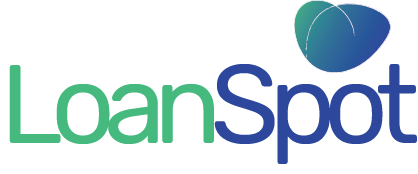When you’re willing to put up some sort of collateral, receiving a loan might sometimes be much simpler. It might appear as your property, house, automobile, or other priceless items. Collateral loans assist you secure the money you’re borrowing and may result in reduced interest rates. A collateral loan, however, may require you to surrender a priceless item if you cannot pay back your obligation.
But how do loans with collateral operate? Learn how lenders calculate the value of your collateral and use it to estimate the amount of your loan by reading on.
What is a Collateral Loan?
A collateral is another name for a collateral loan. This shows that you’ll guarantee the loan with something you own. Additionally, the lender has the right to seize the collateral if you are unable to repay the loan.
A collateral loan could have a cheaper interest rate than an unsecured loan like a credit card. Besides that it can help you secure a bigger loan amount. In some cases, it might be the only option for a borrower with a short or shaky credit history. Or an income that is inadequate to be accepted for an unsecured loan.
How Collateral Loan Works
You can anticipate more favorable lending terms with a collateral loan than with an unsecured loan. This could entail a cheaper interest rate, a bigger loan, or a loan with a longer period.
Lenders will take the time to assess the value of your collateral before approving you for a collateral loan.They will consider your possessions’ fair market value. Or in the event of a mortgage, the home’s appraised value in order to accomplish this. They will then present you with a part of the collateral’s value in order to determine the loan amount. For instance, a lender will consider the neighborhood and potential resale value of the home before authorizing a mortgage.
With a mortgage, a lender will assign a loan-to-value ratio (LTV) to your loan that directly reflects the value of your collateral. Generally speaking, the higher your LTV, the more interest rates and closing costs you may expect to pay. Additionally, you’ll need a bigger down payment. You’ll know your lender is willing to offer you a sizable sum of money if your LTV is 80%, but you’ll have to pay the remaining 20% out of pocket.
How Can I Apply for a Loan with Collateral?
There are things you must do in order to apply for a loan with Collateral. They include:
Check your credit score
Like with other loans, those with higher credit scores are eligible for lower interest rates. To ensure there are no surprises, review your score beforehand.
Prequalify with several lenders
This is where you evaluate your secured loans. This is because loan conditions like interest rates might vary greatly depending on the lender. So, see if a lender will prequalify you. Also check across at least three other lenders to obtain an early look at potential offers. Lenders will run a soft credit check when you apply for prequalification. However, it won’t affect your credit score in any way.
Compare offers
Following prequalification, you must contrast offers based on loan terms and lender fees.
Gather your supporting evidence. Lenders will require documentation to prove your income, financial position, and previous debts. Prepare your submission materials in advance, including pay stubs, W-2s, bank statements, tax paperwork, and mortgage statements.
Submit a formal application
More paperwork should be submitted at this point if your lender requests it.
Receive your money
Before they finalize and you receive your funds, some secured loans, such as mortgages, frequently take weeks. You can acquire money considerably faster with other secured loan types. You might get your money in one business day, for instance, if your loan is backed by a savings account or a CD.
5 Types of Collateral Loans
There are 5 types of Collateral Loans. They include:
1. Home equity loan
Your house will serve as the collateral for the home equity loan, just like it would for a mortgage. With this kind of loan, you can leverage any home equity you have accrued to obtain a lump-sum payout that can be applied to a number of purposes, such as remodeling. Although the interest rate on a home equity loan is predictable and fixed, you must make the payments on time to protect your credit and keep your house.
2. Car title loan
This kind of loan enables you to borrow against your car title, the official document that certifies ownership. That is, if you just need to borrow a modest sum of money for a little period of time. These loans normally have a fee, must be paid back within 30 days, and have exceptionally high interest rates. The lender may seize your vehicle if you go into default. It could be easier for you to take out a small personal loan or a cash advance from a credit card.
3. Residential mortgage
Your home is the collateral for a residential mortgage. You run the risk of losing your house in a foreclosure. This could result in you losing ownership of the property, if you default.
4. Auto loan
This loan type is secured by the automobile or SUV you intend to purchase. It is possible to purchase a car without having to worry about collateral. But because secured loans have the greatest interest rates, most auto loans are secured. Because automobiles tend to depreciate so quickly, lenders often won’t rush to seize it if you default. Instead, they favor collaborating with debtors to maybe relax the terms of the loan and make repayment simpler.
5. Personal loan
With a personal loan, you can borrow money for nearly any purpose, including home repairs, debt consolidation, or paying for medical expenses. You might be able to utilize a personal savings account or certificate of deposit as collateral for this kind of loan (CD). But you run the risk of losing those assets if you default.
What are the Advantages and Disadvantages of Collateral Loan?
Collateral Loan has both pros and cons it comes with. They are:
Pros of Collateral Loan
- Assists borrowers that have below-average credit to get financing and credit-building.
- Loan amount with a potentially lower interest rate.
Cons of Collateral Loan
- Borrowers only eligible for loans if they have assets
- More formality in the application procedure
- Possibly lose your asset.
Read also: Debt financing – What you need to know
Conclusion
Lenders always expect receiving the repayments of the loans they give borrowers. Depending on the lender, after 30 days of a missed payment, they may consider your collateral loan a default. After you have missed a payment, most lenders could offer you a grace period. Regardless, ensure you repay your loan on time so they will not report you to credit bureaus and get you blacklisted.

